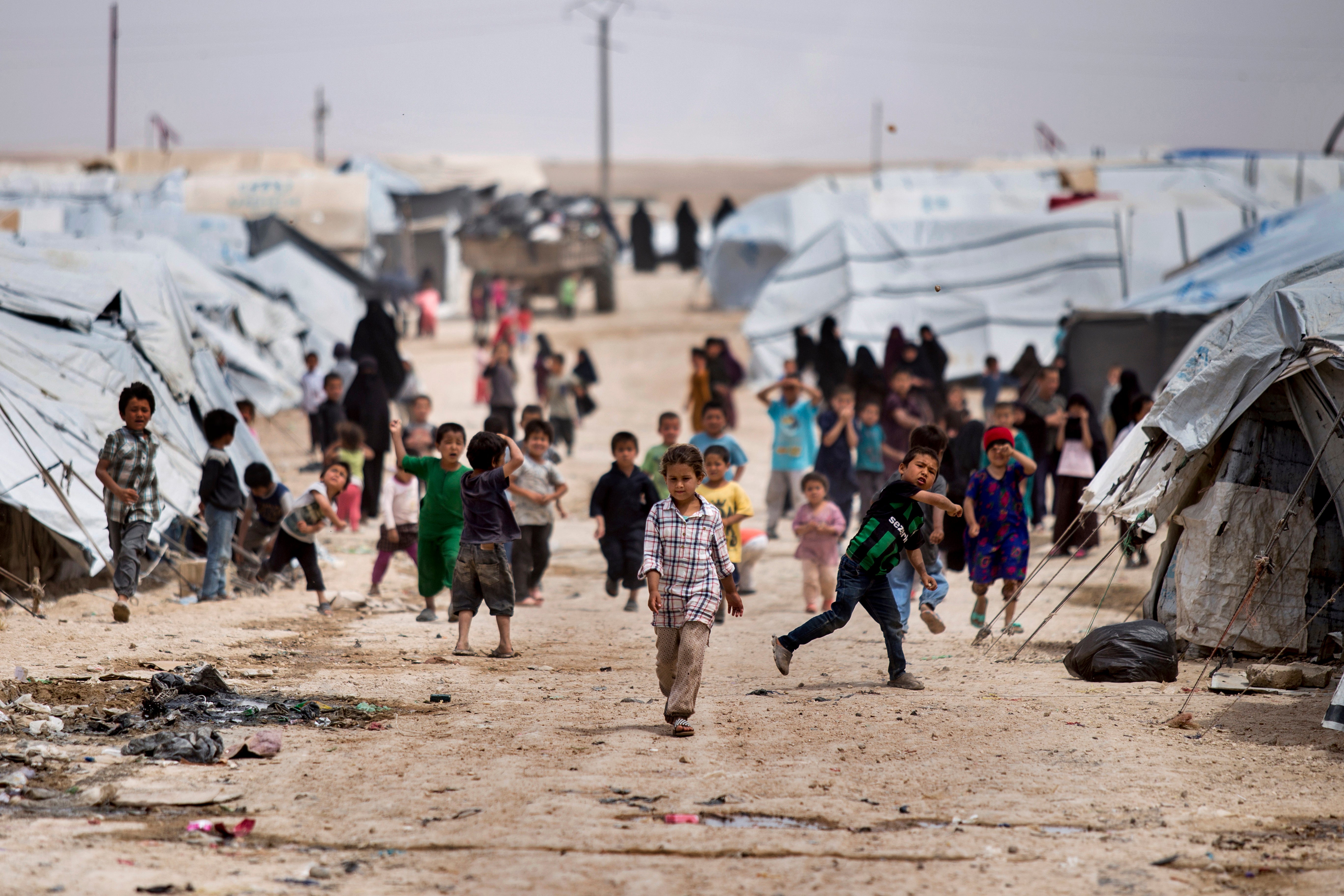Belgium takes back mothers and children from Syria
Belgium's judicial authorities have brought home six women and 16 children with Belgian citizenship who were held in Syria for their suspected connection with the Islamic State group

Your support helps us to tell the story
From reproductive rights to climate change to Big Tech, The Independent is on the ground when the story is developing. Whether it's investigating the financials of Elon Musk's pro-Trump PAC or producing our latest documentary, 'The A Word', which shines a light on the American women fighting for reproductive rights, we know how important it is to parse out the facts from the messaging.
At such a critical moment in US history, we need reporters on the ground. Your donation allows us to keep sending journalists to speak to both sides of the story.
The Independent is trusted by Americans across the entire political spectrum. And unlike many other quality news outlets, we choose not to lock Americans out of our reporting and analysis with paywalls. We believe quality journalism should be available to everyone, paid for by those who can afford it.
Your support makes all the difference.Belgium's judicial authorities said on Tuesday they have repatriated six women of Belgian citizenship who were held in a Syrian detention camp for foreigners affiliated with Islamic State group extremists, along with 16 children.
The federal prosecutor's office said it's the second repatriation operation of this kind after the one that took place in July 2021, when Belgian authorities took back six mothers and 10 children.
Federal prosecutor Frederic Van Leeuw told a news conference that the children were born between 2010 and 2019 and were immediately separated from their mothers upon arrival at the Melsbroek Air Base.
“Among them is an orphan of a Belgian father," he said. “These children were immediately taken into care by the competent youth services and prosecutors."
The transfer from Syria was made possible by a decision last year by the Belgian governement to allow the return of mothers who clearly expressed the wish to return, and who have clearly distanced themselves from extremist ideology.
Van Leeuw said DNA tests were carried out to properly identify the link between the mothers and the children who returned Tuesday.
All the women on the latest flight have been given sentences in Belgium of up to five years in jail and were arrested upon arrival. Their children will remain under medical observation for a while.
“Then, an appropriate framework will be put in place on a case-by-case basis," Van Leeuw said. “Everyone will understand that it is important to respect the privacy of children and those around them, so that ... their integration can take place in all serenity.”
Federal police commissioner Marc De Mesmaeker said the children were escorted to Belgium in “the best possible way." He said they were accompanied by people speaking their language throughout the stressful journey and were given food, clothes and toys.
Van Leeuw said the repatriation operation, which was carried out in cooperation with local authorities, took place in the Roj Camp in northeast Syria. It is home to some 2,500 women and children.
Van Leeuw said there are a few Belgian women left in Syria, but not in the Roj camp. He estimated that between 10 and 15 Belgian men are in prison in the country. Belgium is not trying to bring them back home.
Under the Belgian doctrine, returning children home is being done for humanitarian reasons. But repatriation operations of women are also as a matter of national security since it's easier to monitor people who have spent time in Syria when they are on home soil.
Since the war in Syria began in 2011, several hundred Belgians have traveled to conflict zones in Iraq and Syria to join terror groups, Belgium has also been hit by several terror attacks in the past decade, including suicide bombings in 2016 that killed 32 people and wounded hundreds more in the Brussels subway and airport.